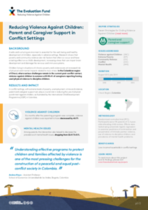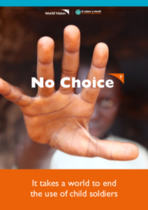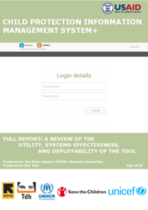Parenting Programmes to Prevent Family Violence: Challenges and Opportunities
This webinar includes presentations from the Democratic Republic of Congo and the Philippines, sharing experiences designing, managing and evaluating parenting interventions to reduce violence against children and adolescents by parents and caregivers.



